
The auto industry continues to grow and has reached the 300k figure for the sixth month in a row. The industry boasted a strong performance in Nov 2022 reflecting the sustained consumer demands, The industry estimates suggest that over 322,861 passenger vehicles were sold in the month of Nov 2022 and a growing trend of 32% year-on-year. These are the highest sales figures ever recorded in November.
The passenger vehicle segment has already sold 3.5 million units until Nov 2022, and the sales figures are very likely to hit the peak of about 3.8 million units in 2022. As the industry is still sitting on 800,000 to 900,000 pending vehicle orders. As the chip shortage eases we could see record numbers continue for upcoming months.
Indian automakers mostly report the wholesale dispatch of vehicles from factories and not the exact retail sales figures to customers.
 The industry numbers are led by the top five carmakers as they are reported to have registered double-digit sales growth for Nov 2022.
Leading the pack is market leader Maruti Suzuki, which saw wholesale volume growth by aroubd 20% to 132,395 units, and still has an order backlog of about 374,000 units.
Hyundai registered 30% growth with 48,003 units sold last month. They might very well end the year with the highest-ever domestic growth figures since their inception in India. Tata Motors registered overall sales growth of 55% with sales of 46,037 units for the month of November.
Mahindra & Mahindra registered a 56% increase in passenger vehicle sales with 30,392 units of registered sales.
MG Motor India registered sales of 4,079 units with a year-on-year growth of 64.4% , with the updated MG Hector soon to be unveiled and launched, we can expect these numbers to keep the upward trends for the coming months.
The month of December is expected to continue the bumper sales performance as the industry gears up to work out delivery timelines and reduce the waiting period for cars.
The industry numbers are led by the top five carmakers as they are reported to have registered double-digit sales growth for Nov 2022.
Leading the pack is market leader Maruti Suzuki, which saw wholesale volume growth by aroubd 20% to 132,395 units, and still has an order backlog of about 374,000 units.
Hyundai registered 30% growth with 48,003 units sold last month. They might very well end the year with the highest-ever domestic growth figures since their inception in India. Tata Motors registered overall sales growth of 55% with sales of 46,037 units for the month of November.
Mahindra & Mahindra registered a 56% increase in passenger vehicle sales with 30,392 units of registered sales.
MG Motor India registered sales of 4,079 units with a year-on-year growth of 64.4% , with the updated MG Hector soon to be unveiled and launched, we can expect these numbers to keep the upward trends for the coming months.
The month of December is expected to continue the bumper sales performance as the industry gears up to work out delivery timelines and reduce the waiting period for cars.
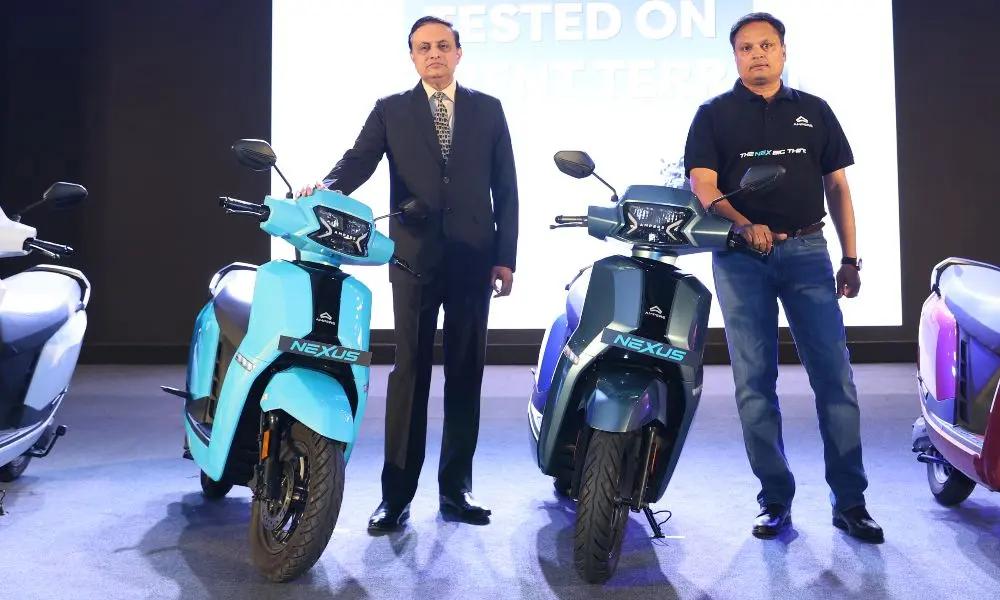
Extended Battery Warranty for the Ampere Nexus
 Ampere has announced an upgraded warranty for its flagship electric scooter, the Nexus. Effective immediately, all variants of the Nexus now come with a standard 5-year or 75,000 km battery warranty, whichever comes first. This move positions the Nexus among the top offerings in the Indian electric two-wheeler market in terms of battery assurance.
Powertrain and Performance
The Ampere Nexus is powered by a 3 kWh lithium iron phosphate (LFP) battery pack, known for its superior thermal stability and safety compared to traditional lithium-ion batteries. The scooter delivers a real-world range of approximately 100 km and boasts a top speed of 93 km/h. Charging the battery to full capacity takes about 3 hours and 22 minutes.
Pricing and Availability
Ampere has announced an upgraded warranty for its flagship electric scooter, the Nexus. Effective immediately, all variants of the Nexus now come with a standard 5-year or 75,000 km battery warranty, whichever comes first. This move positions the Nexus among the top offerings in the Indian electric two-wheeler market in terms of battery assurance.
Powertrain and Performance
The Ampere Nexus is powered by a 3 kWh lithium iron phosphate (LFP) battery pack, known for its superior thermal stability and safety compared to traditional lithium-ion batteries. The scooter delivers a real-world range of approximately 100 km and boasts a top speed of 93 km/h. Charging the battery to full capacity takes about 3 hours and 22 minutes.
Pricing and Availability
 The Ampere Nexus is available in two variants:
EX Variant: ₹1.15 lakh (ex-showroom, Bengaluru)
ST Variant: ₹1.25 lakh (ex-showroom, Bengaluru)
Both variants are offered in four color options: Zanskar Aqua, Lunar White, Indian Red, and Steel Grey. The Nexus is currently available for purchase at various dealerships across India.
Conclusion
With the introduction of a 5-year battery warranty, Ampere demonstrates its commitment to customer satisfaction and product reliability. The Nexus electric scooter continues to stand out in the competitive EV market, offering consumers enhanced peace of mind and a compelling reason to consider it as their next electric two-wheeler
The Ampere Nexus is available in two variants:
EX Variant: ₹1.15 lakh (ex-showroom, Bengaluru)
ST Variant: ₹1.25 lakh (ex-showroom, Bengaluru)
Both variants are offered in four color options: Zanskar Aqua, Lunar White, Indian Red, and Steel Grey. The Nexus is currently available for purchase at various dealerships across India.
Conclusion
With the introduction of a 5-year battery warranty, Ampere demonstrates its commitment to customer satisfaction and product reliability. The Nexus electric scooter continues to stand out in the competitive EV market, offering consumers enhanced peace of mind and a compelling reason to consider it as their next electric two-wheeler
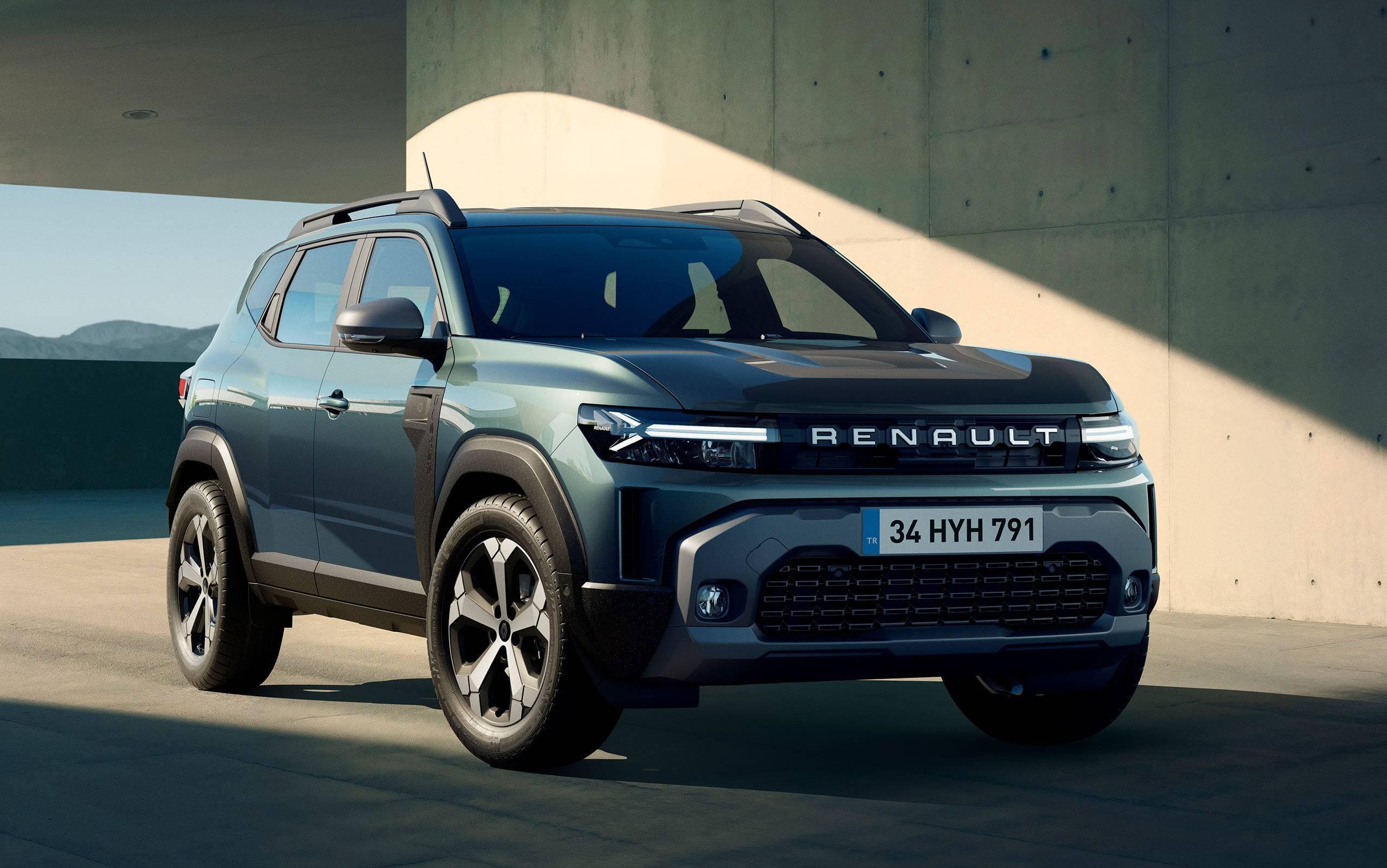
All-Electric Powertrain for the Duster
 Dacia CEO Denis Le Vot has confirmed that the Renault Duster will receive an all-electric powertrain. This move aligns with Renault's strategy to electrify its vehicle lineup in response to the European Union's 2035 ban on new internal combustion engine (ICE) vehicles. The Duster EV will be sold under the Dacia brand in European markets, with a launch expected after the 2027 Sandero EV.
CMF-BEV Platform: Backbone of the Duster EV
The Duster EV will be built on Renault's CMF-BEV platform, the same architecture used for the Renault 5 and 4 crossover models. This platform is designed specifically for electric vehicles, allowing for the integration of both front and rear electric motors. While current models using this platform are front-wheel drive, the Duster EV is expected to offer an all-wheel-drive (AWD) variant, enhancing its off-road capabilities.
Global and Indian Launch Plans
Dacia CEO Denis Le Vot has confirmed that the Renault Duster will receive an all-electric powertrain. This move aligns with Renault's strategy to electrify its vehicle lineup in response to the European Union's 2035 ban on new internal combustion engine (ICE) vehicles. The Duster EV will be sold under the Dacia brand in European markets, with a launch expected after the 2027 Sandero EV.
CMF-BEV Platform: Backbone of the Duster EV
The Duster EV will be built on Renault's CMF-BEV platform, the same architecture used for the Renault 5 and 4 crossover models. This platform is designed specifically for electric vehicles, allowing for the integration of both front and rear electric motors. While current models using this platform are front-wheel drive, the Duster EV is expected to offer an all-wheel-drive (AWD) variant, enhancing its off-road capabilities.
Global and Indian Launch Plans
 The Duster EV is set to be the second Dacia model to adopt an electric powertrain, following the Sandero EV. In India, Renault plans to introduce the Duster in early 2026, with production commencing at the Renault-Nissan plant in Chennai by September 2025. The Indian market will receive both petrol and hybrid variants initially, with the electric version expected to follow in subsequent years
What to Expect from the Duster EV
Powertrain Options: All-electric with potential AWD capability
Platform: Renault's CMF-BEV, supporting both front and rear electric motors
Launch Timeline: European markets post-2027; India launch expected in the early 2030s.
Localisation: High localisation planned for the Indian market to ensure affordability.
The Duster EV is set to be the second Dacia model to adopt an electric powertrain, following the Sandero EV. In India, Renault plans to introduce the Duster in early 2026, with production commencing at the Renault-Nissan plant in Chennai by September 2025. The Indian market will receive both petrol and hybrid variants initially, with the electric version expected to follow in subsequent years
What to Expect from the Duster EV
Powertrain Options: All-electric with potential AWD capability
Platform: Renault's CMF-BEV, supporting both front and rear electric motors
Launch Timeline: European markets post-2027; India launch expected in the early 2030s.
Localisation: High localisation planned for the Indian market to ensure affordability.
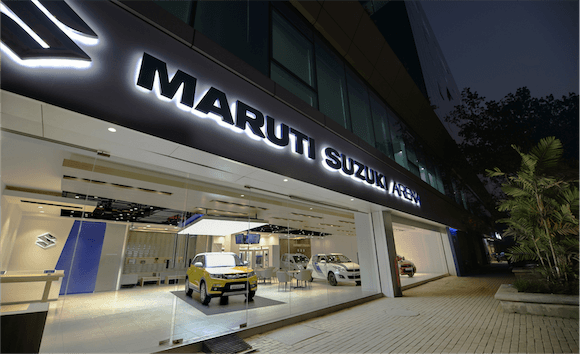
Top Discounts on Maruti Suzuki Nexa Models
 Maruti Suzuki Nexa dealerships across India are offering attractive discounts and benefits on select models for June 2025. These offers include cash discounts, exchange bonuses, scrappage benefits, and extended warranty packages. Please note that discounts may vary by city and dealership. It's advisable to check with your local Nexa dealer for the most accurate information.
Model-Wise Discount Breakdown
Maruti Grand Vitara
MY2024 Strong Hybrid: Up to ₹1.70 lakh in benefits, including a cash discount of ₹70,000, an extended warranty worth ₹35,000, and a scrappage bonus of ₹65,000.
MY2024 Petrol: Up to ₹1.50 lakh in benefits, with Dominion Edition accessories worth ₹41,000 on Delta, Zeta, and Alpha trims.
MY2025 Strong Hybrid: Up to ₹1.30 lakh in benefits.
MY2025 Petrol: Up to ₹1.10 lakh in benefits, including Dominion Edition accessories worth ₹41,000.
MY2024 CNG: ₹20,000 in benefits.
Maruti Invicto
Alpha+ Trim: Up to ₹1.40 lakh in benefits.
Zeta+ Trim: Up to ₹1.15 lakh in benefits
Maruti Jimny
Alpha Trim: Up to ₹70,000 in benefits
Maruti Fronx
Turbo Variants: Up to ₹93,000 in benefits, including a cash discount, exchange/scrappage bonus, and Velocity Edition accessories worth ₹43,000
Petrol Variants: Up to ₹45,000 in benefits.
CNG Variant: ₹15,000 in exchange/scrappage bonuses.
Maruti Ignis
AMT Variants: Up to ₹60,000 in benefits.
Manual Variants: Up to ₹50,000 in benefits.
Maruti Baleno
AMT and CNG Variants: Up to ₹65,000 in benefits.
Delta, Zeta, and Alpha Petrol-Manual Variants: Up to ₹50,000 in benefits.
Sigma Trim: Up to ₹40,000 in benefits.
Maruti Ciaz
All Variants: Up to ₹50,000 in benefits.
Maruti XL6
All Variants: Up to ₹25,000 in benefits.
Important Notes
Offers Validity: These offers are valid throughout June 2025.
Model Year Variations: Discounts may vary based on the model year (2024 or 2025) and variant.
Availability: Offers are subject to stock availability and may vary by city and dealership.
Dealer Confirmation: It's recommended to confirm the exact offers with your local Nexa dealer.
How to Avail These Offers
To take advantage of these exclusive offers:
Visit: Your nearest Maruti Suzuki Nexa dealership.
Inquire: About the specific discounts and benefits available for your preferred model and variant.
Book: Schedule a test drive or place an order to avail the offers
Maruti Suzuki Nexa dealerships across India are offering attractive discounts and benefits on select models for June 2025. These offers include cash discounts, exchange bonuses, scrappage benefits, and extended warranty packages. Please note that discounts may vary by city and dealership. It's advisable to check with your local Nexa dealer for the most accurate information.
Model-Wise Discount Breakdown
Maruti Grand Vitara
MY2024 Strong Hybrid: Up to ₹1.70 lakh in benefits, including a cash discount of ₹70,000, an extended warranty worth ₹35,000, and a scrappage bonus of ₹65,000.
MY2024 Petrol: Up to ₹1.50 lakh in benefits, with Dominion Edition accessories worth ₹41,000 on Delta, Zeta, and Alpha trims.
MY2025 Strong Hybrid: Up to ₹1.30 lakh in benefits.
MY2025 Petrol: Up to ₹1.10 lakh in benefits, including Dominion Edition accessories worth ₹41,000.
MY2024 CNG: ₹20,000 in benefits.
Maruti Invicto
Alpha+ Trim: Up to ₹1.40 lakh in benefits.
Zeta+ Trim: Up to ₹1.15 lakh in benefits
Maruti Jimny
Alpha Trim: Up to ₹70,000 in benefits
Maruti Fronx
Turbo Variants: Up to ₹93,000 in benefits, including a cash discount, exchange/scrappage bonus, and Velocity Edition accessories worth ₹43,000
Petrol Variants: Up to ₹45,000 in benefits.
CNG Variant: ₹15,000 in exchange/scrappage bonuses.
Maruti Ignis
AMT Variants: Up to ₹60,000 in benefits.
Manual Variants: Up to ₹50,000 in benefits.
Maruti Baleno
AMT and CNG Variants: Up to ₹65,000 in benefits.
Delta, Zeta, and Alpha Petrol-Manual Variants: Up to ₹50,000 in benefits.
Sigma Trim: Up to ₹40,000 in benefits.
Maruti Ciaz
All Variants: Up to ₹50,000 in benefits.
Maruti XL6
All Variants: Up to ₹25,000 in benefits.
Important Notes
Offers Validity: These offers are valid throughout June 2025.
Model Year Variations: Discounts may vary based on the model year (2024 or 2025) and variant.
Availability: Offers are subject to stock availability and may vary by city and dealership.
Dealer Confirmation: It's recommended to confirm the exact offers with your local Nexa dealer.
How to Avail These Offers
To take advantage of these exclusive offers:
Visit: Your nearest Maruti Suzuki Nexa dealership.
Inquire: About the specific discounts and benefits available for your preferred model and variant.
Book: Schedule a test drive or place an order to avail the offers

Triumph's Strong Showing at Southwick
 Triumph Factory Racing showcased remarkable performance at Round 5 of the 2025 AMA Pro Motocross Championship held at the iconic Southwick track. Riders Mikkel Haarup and Jordon Smith delivered standout performances, highlighting the team's growing presence in the motocross scene
250MX Class: Triumph's Rising Stars
Mikkel Haarup: Secured a season-best 6th place overall with moto scores of 5-6, demonstrating consistent speed and resilience on the challenging sandy terrain
Jordon Smith: Achieved 10th place overall with moto finishes of 14-7, showcasing determination and skill in the competitive field.
Both riders continue to build momentum, reflecting Triumph's commitment to excellence in the sport.
Triumph TF 250-X: Engineered for Success
Triumph Factory Racing showcased remarkable performance at Round 5 of the 2025 AMA Pro Motocross Championship held at the iconic Southwick track. Riders Mikkel Haarup and Jordon Smith delivered standout performances, highlighting the team's growing presence in the motocross scene
250MX Class: Triumph's Rising Stars
Mikkel Haarup: Secured a season-best 6th place overall with moto scores of 5-6, demonstrating consistent speed and resilience on the challenging sandy terrain
Jordon Smith: Achieved 10th place overall with moto finishes of 14-7, showcasing determination and skill in the competitive field.
Both riders continue to build momentum, reflecting Triumph's commitment to excellence in the sport.
Triumph TF 250-X: Engineered for Success
 The team's performance is bolstered by the advanced Triumph TF 250-X, featuring:
Lightweight Aluminum Chassis: Ensures agility and durability.
KYB Suspension System: Provides superior handling on varied terrains.
Brembo Braking Components: Offers precise control and safety.
These features contribute to the bike's competitive edge in the 250MX class.
Looking Ahead: Triumph's Future in Motocross
The team's performance is bolstered by the advanced Triumph TF 250-X, featuring:
Lightweight Aluminum Chassis: Ensures agility and durability.
KYB Suspension System: Provides superior handling on varied terrains.
Brembo Braking Components: Offers precise control and safety.
These features contribute to the bike's competitive edge in the 250MX class.
Looking Ahead: Triumph's Future in Motocross
 With continued development and rider growth, Triumph Factory Racing is poised to make significant strides in the upcoming rounds of the 2025 AMA Pro Motocross Championship. Fans can anticipate more exciting performances from the team as they aim for podium finishes
Source
With continued development and rider growth, Triumph Factory Racing is poised to make significant strides in the upcoming rounds of the 2025 AMA Pro Motocross Championship. Fans can anticipate more exciting performances from the team as they aim for podium finishes
Source
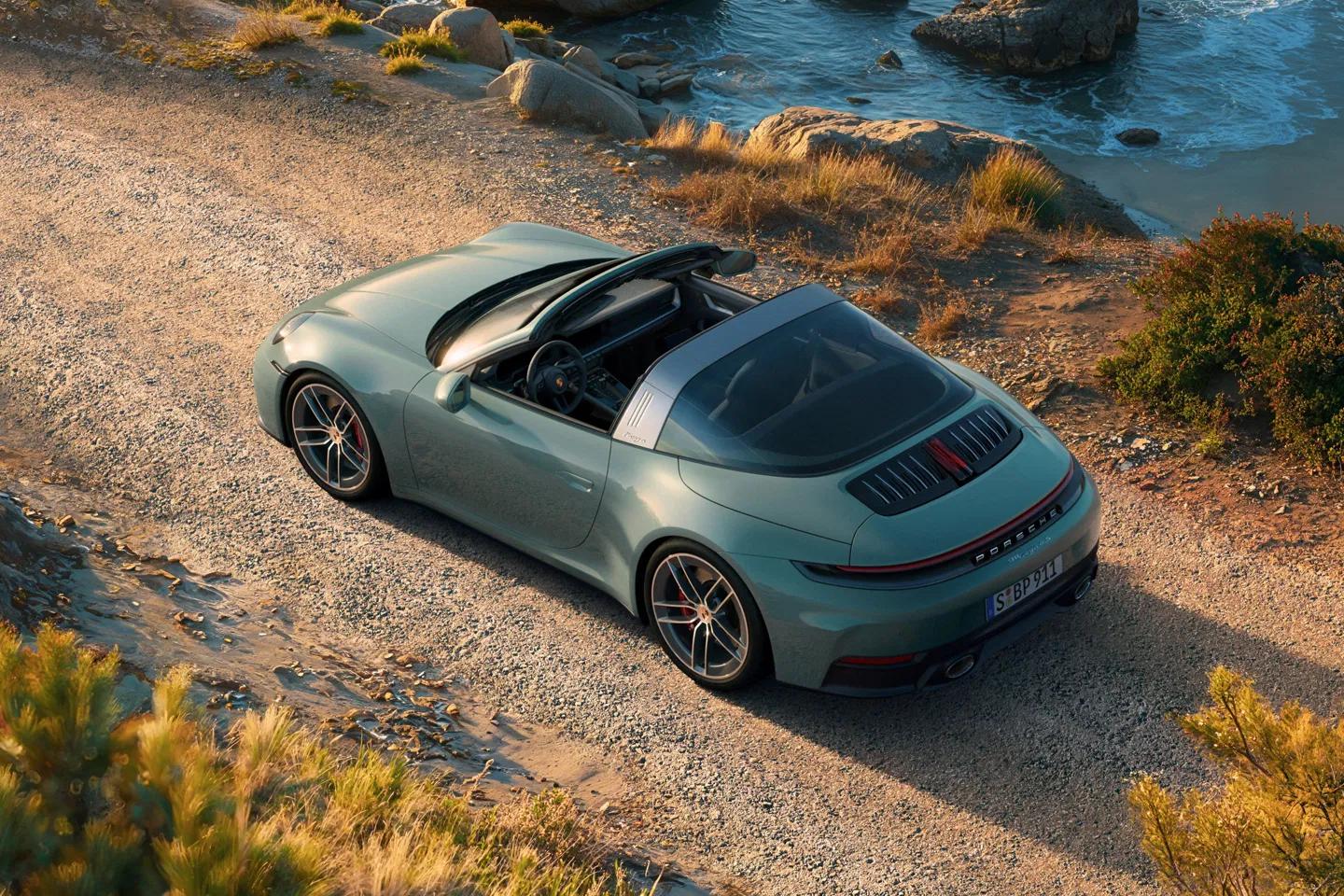
Porsche Introduces New 992 Carrera 4S Range Including Targa Variant
 Porsche has expanded its 992.2 lineup by adding the all‑wheel‑drive Carrera 4S in Coupe, Cabriolet, and Targa versions—bringing the total AWD 911 models to six and filling a gap beneath the GTS series
Performance & Powertrain
Porsche has expanded its 992.2 lineup by adding the all‑wheel‑drive Carrera 4S in Coupe, Cabriolet, and Targa versions—bringing the total AWD 911 models to six and filling a gap beneath the GTS series
Performance & Powertrain
 Powered by a** 3.0 L twin‑turbo f**lat‑six tuned to 473 hp (353 kW) and 390 lb‑ft torque, matching prior Carrera GTS output level with refined intercooling
Equipped with the 8-speed PDK dual-clutch gearbox and a rear‑biased AWD system (PTM) that channels power to all wheels as needed
Acceleration for the coupe with Sport Chrono: ~0–100 km/h in 3.3 s (or 3.1 s by other estimates), with 191 mph (308–310 km/h) top speed as standard
Standard Equipment & Dynamics Enhancements
Powered by a** 3.0 L twin‑turbo f**lat‑six tuned to 473 hp (353 kW) and 390 lb‑ft torque, matching prior Carrera GTS output level with refined intercooling
Equipped with the 8-speed PDK dual-clutch gearbox and a rear‑biased AWD system (PTM) that channels power to all wheels as needed
Acceleration for the coupe with Sport Chrono: ~0–100 km/h in 3.3 s (or 3.1 s by other estimates), with 191 mph (308–310 km/h) top speed as standard
Standard Equipment & Dynamics Enhancements
 Comes with 408 mm front and 380 mm rear discs, Porsche Torque Vectoring Plus, and a sport exhaust system by default—tech previously seen only on GTS cars
Wheels: standard 20-inch front / 21-inch rear staggered set‑ups; rear‑steer is standard on the Targa, optional on other variants .
Upgraded dampers and improved hydraulic setups enhance responsiveness and ride quality over the previous generation
Body Styles & Seating Configurations
Coupe: offers a 2-seat layout by default or optional 2+2 seating at no extra cost
Cabriolet & Targa: standard 4-seater configurations, with Targa offering unique roof mechanics and exclusive rear-steer functionality
Why It Matters
Comes with 408 mm front and 380 mm rear discs, Porsche Torque Vectoring Plus, and a sport exhaust system by default—tech previously seen only on GTS cars
Wheels: standard 20-inch front / 21-inch rear staggered set‑ups; rear‑steer is standard on the Targa, optional on other variants .
Upgraded dampers and improved hydraulic setups enhance responsiveness and ride quality over the previous generation
Body Styles & Seating Configurations
Coupe: offers a 2-seat layout by default or optional 2+2 seating at no extra cost
Cabriolet & Targa: standard 4-seater configurations, with Targa offering unique roof mechanics and exclusive rear-steer functionality
Why It Matters
 Around 50% of Carrera S buyers opt for AWD, especially in regions with variable weather and road surfaces—making this expansion a strategic move
The Carrera 4S variants position themselves neatly between Carrera S and Carrera GTS in Porsche’s hierarchy, bridging dynamic capability and daily usability
Standard sports-grade equipment now expands across broader trims, improving value without stepping into GTS pricing territory
Final Take for CarTopNews
With the 2026 Carrera 4S Coupe, Cabriolet, and Targa, Porsche brings sweet-spot performance with AWD traction, increased standard kit, and greater model variety. It bolsters the 911’s appeal for buyers prioritising daily usability without compromising on character or cornering capability.
Around 50% of Carrera S buyers opt for AWD, especially in regions with variable weather and road surfaces—making this expansion a strategic move
The Carrera 4S variants position themselves neatly between Carrera S and Carrera GTS in Porsche’s hierarchy, bridging dynamic capability and daily usability
Standard sports-grade equipment now expands across broader trims, improving value without stepping into GTS pricing territory
Final Take for CarTopNews
With the 2026 Carrera 4S Coupe, Cabriolet, and Targa, Porsche brings sweet-spot performance with AWD traction, increased standard kit, and greater model variety. It bolsters the 911’s appeal for buyers prioritising daily usability without compromising on character or cornering capability.
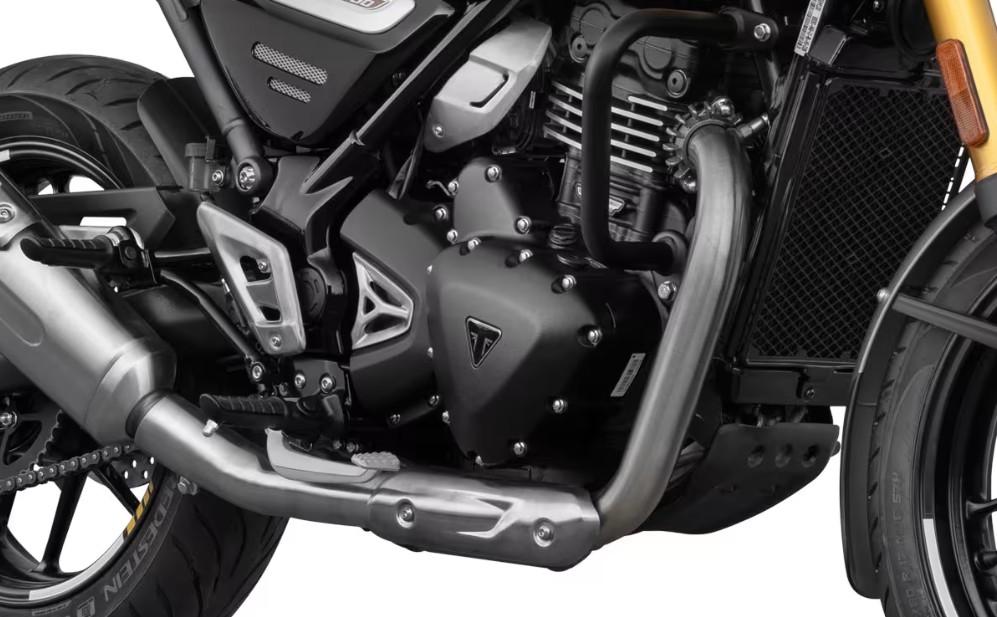
Triumph Speed 400 Arrives with Complimentary ₹7,600 Accessory Pack
 As part of its second-year anniversary celebration, Triumph Motorcycles India is offering a limited-period bundle where every new Speed 400 buyer receives free accessories worth ₹7,600. This value package includes practical gear like a windscreen, engine guard bars, knee pads, tank pad—and more—without additional cost
What’s Included in the Free Kit (Approx. ₹7,600 Value)
Windscreen to deflect airflow on highways
Lower engine protection bars
Knee pads for rider grip and leg protection
Tank pad for better thigh grip and tank protection
Offer Validity & Eligibility
As part of its second-year anniversary celebration, Triumph Motorcycles India is offering a limited-period bundle where every new Speed 400 buyer receives free accessories worth ₹7,600. This value package includes practical gear like a windscreen, engine guard bars, knee pads, tank pad—and more—without additional cost
What’s Included in the Free Kit (Approx. ₹7,600 Value)
Windscreen to deflect airflow on highways
Lower engine protection bars
Knee pads for rider grip and leg protection
Tank pad for better thigh grip and tank protection
Offer Validity & Eligibility
 Valid pan-India until July 31, 2025, or until stock lasts
Applies across all dealerships for standard Speed 400 purchases, subject to availability and regional policies
Buyer Feedback: What Are Others Saying?
The offer has sparked interest among riders:
“Got an accessory voucher worth 5k INR”
“One dealer promises free accessories like radiator guard and knee caps…”
— Community feedback on buyer experiences shows variations, but many confirm newer bookings include accessories or voucher deals.
Note: Promotional offers can differ by dealership—some provide accessory vouchers, while others include items directly.
Why This Accessory Bundle Matters
Valid pan-India until July 31, 2025, or until stock lasts
Applies across all dealerships for standard Speed 400 purchases, subject to availability and regional policies
Buyer Feedback: What Are Others Saying?
The offer has sparked interest among riders:
“Got an accessory voucher worth 5k INR”
“One dealer promises free accessories like radiator guard and knee caps…”
— Community feedback on buyer experiences shows variations, but many confirm newer bookings include accessories or voucher deals.
Note: Promotional offers can differ by dealership—some provide accessory vouchers, while others include items directly.
Why This Accessory Bundle Matters
 Better Value: Adds accessories of practical use at no extra cost, sweetening the ₹2.46 lakh ex-showroom purchase
Enhanced usability: Items like windscreen, tank pad and protection bars improve ride comfort and bike safety.
Competitive edge: Accessory kits are rare in this segment, boosting the overall ownership experience.
Final Take for CarTopNews Readers
With accessories worth ₹7,600 included for free, Triumph’s Speed 400 bike offer adds tangible utility—at no additional cost. This promotion suits first-time riders, touring enthusiasts, or anyone looking for value-added ownership. Given limited availability, early booking is advised.
Better Value: Adds accessories of practical use at no extra cost, sweetening the ₹2.46 lakh ex-showroom purchase
Enhanced usability: Items like windscreen, tank pad and protection bars improve ride comfort and bike safety.
Competitive edge: Accessory kits are rare in this segment, boosting the overall ownership experience.
Final Take for CarTopNews Readers
With accessories worth ₹7,600 included for free, Triumph’s Speed 400 bike offer adds tangible utility—at no additional cost. This promotion suits first-time riders, touring enthusiasts, or anyone looking for value-added ownership. Given limited availability, early booking is advised.
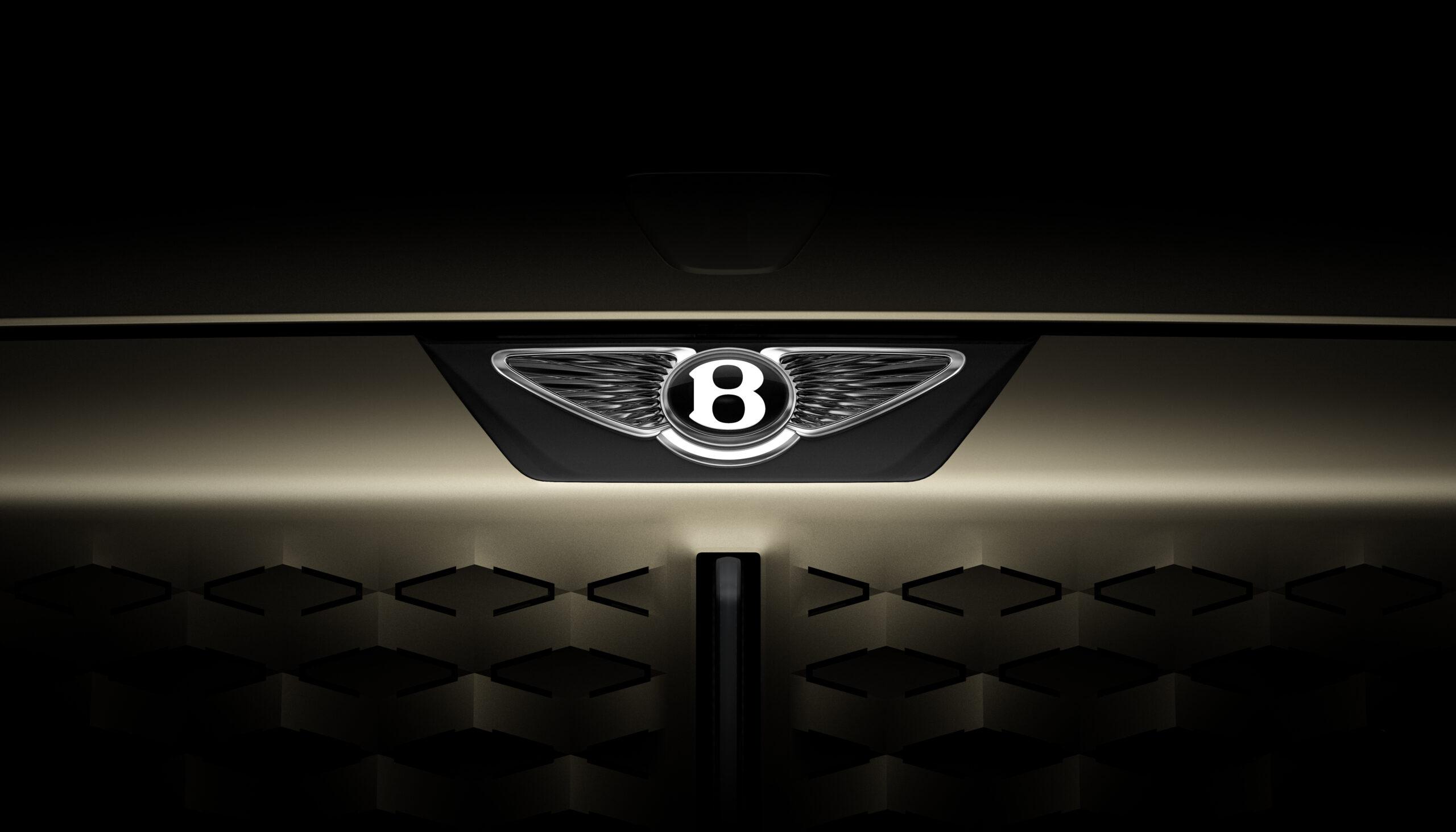
Bentley’s Bold Brand Refresh: New Logo & Concept Teased for July 8
 Bentley Motors has unveiled a refreshed version of its iconic Winged B emblem, marking only the fifth update since the original 1919 design. This modernized badge will debut on a new future-vision concept car on 8 July 2025, signaling a major shift in Bentley’s design direction and brand identity
The Next-Gen Winged B
Sharper, edgier wings, influenced by the aerodynamic form of a peregrine falcon, replacing the softer "owl-inspired" look of prior iterations
Simplified silhouette: The lower feathers have been removed for a cleaner aesthetic suited to digital applications
Enhanced central ‘B’: Now styled like a luxury watch jewel, featuring bevelled glass, a 3D-depth metal surround, and capable of standalone use in digital formats
Created in-house under design-chief Robin Page, based on a concept by Young Nam—reflecting a blend of heritage and innovation
What’s Coming: The Future-Vision Concept Car
Bentley Motors has unveiled a refreshed version of its iconic Winged B emblem, marking only the fifth update since the original 1919 design. This modernized badge will debut on a new future-vision concept car on 8 July 2025, signaling a major shift in Bentley’s design direction and brand identity
The Next-Gen Winged B
Sharper, edgier wings, influenced by the aerodynamic form of a peregrine falcon, replacing the softer "owl-inspired" look of prior iterations
Simplified silhouette: The lower feathers have been removed for a cleaner aesthetic suited to digital applications
Enhanced central ‘B’: Now styled like a luxury watch jewel, featuring bevelled glass, a 3D-depth metal surround, and capable of standalone use in digital formats
Created in-house under design-chief Robin Page, based on a concept by Young Nam—reflecting a blend of heritage and innovation
What’s Coming: The Future-Vision Concept Car
 The concept car debut on 8 July will wear the new logo, unveiling Bentley’s upcoming electric-era design language
Teasers show a front fascia with illuminated X-shaped patterns and a bold vertical LED strip, hinting at futuristic styling and likely EV architecture
Though not a production preview, the concept is said to draw inspiration from a historic Bentley model, blending nostalgia with bold new direction
Why It Matters for Luxury EV Branding
The new logo launch comes as Bentley transitions to all plug-in hybrid and EV models by 2026, with future applications including a sub‑Bentayga electric SUV planned for 2027
This emblemic refresh represents a brand evolution, aligning Bentley’s identity with evolving customer expectations and digital-first brand use
It positions Bentley at the forefront of heritage-conscious modernization, signaling an ambitious new phase under design leadership of Robin Page
Final Take for CarTopNews
Bentley’s unveiling of a cleaner, sharper Winged B logo and a mystery concept car sets the stage for its next era—a future where luxury meets electrification and heritage meets innovation. The July 8 reveal will likely define Bentley’s stylistic and strategic direction in the electric age.
The concept car debut on 8 July will wear the new logo, unveiling Bentley’s upcoming electric-era design language
Teasers show a front fascia with illuminated X-shaped patterns and a bold vertical LED strip, hinting at futuristic styling and likely EV architecture
Though not a production preview, the concept is said to draw inspiration from a historic Bentley model, blending nostalgia with bold new direction
Why It Matters for Luxury EV Branding
The new logo launch comes as Bentley transitions to all plug-in hybrid and EV models by 2026, with future applications including a sub‑Bentayga electric SUV planned for 2027
This emblemic refresh represents a brand evolution, aligning Bentley’s identity with evolving customer expectations and digital-first brand use
It positions Bentley at the forefront of heritage-conscious modernization, signaling an ambitious new phase under design leadership of Robin Page
Final Take for CarTopNews
Bentley’s unveiling of a cleaner, sharper Winged B logo and a mystery concept car sets the stage for its next era—a future where luxury meets electrification and heritage meets innovation. The July 8 reveal will likely define Bentley’s stylistic and strategic direction in the electric age.
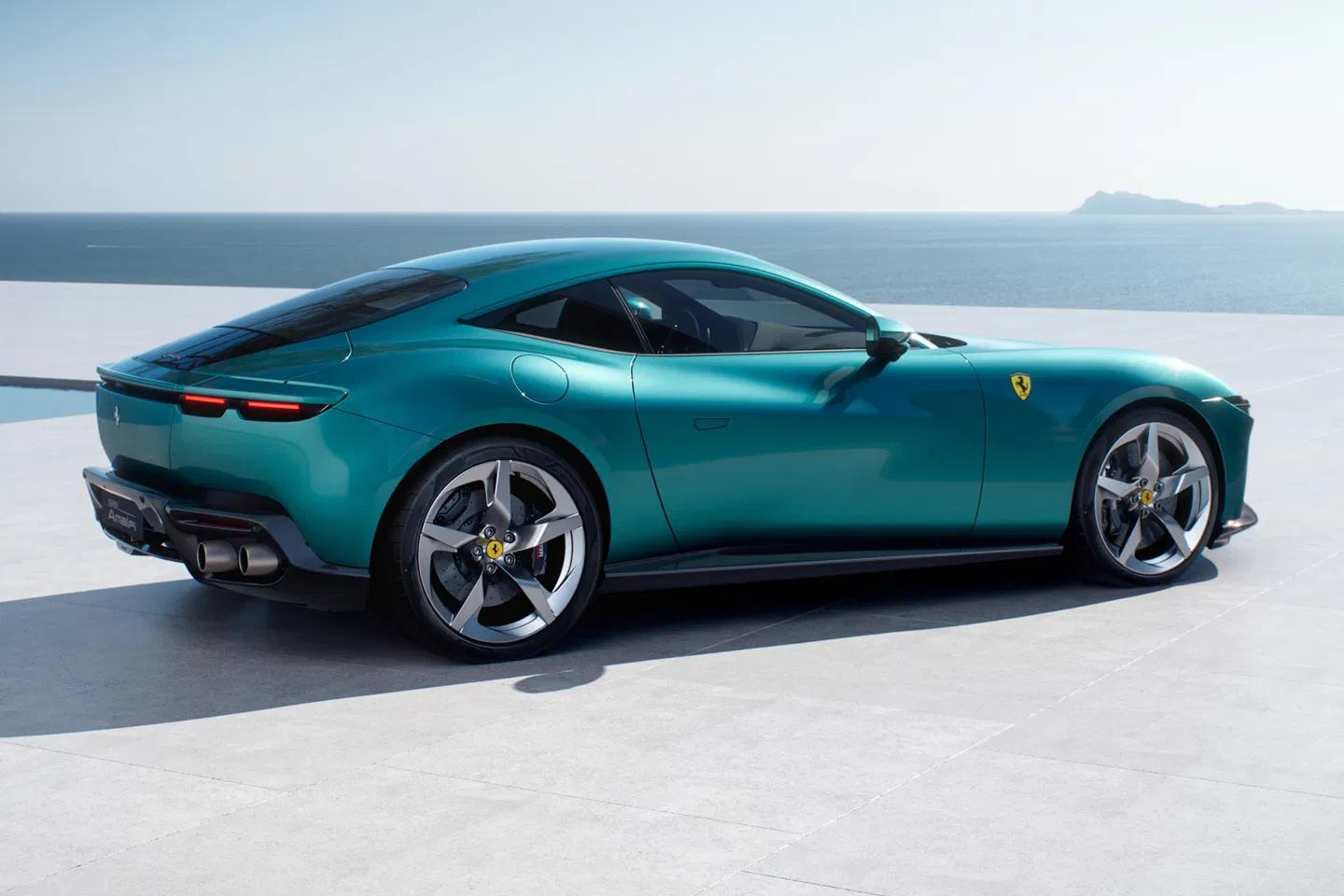
Ferrari Unveils the Amalfi—A Sharper, More Powerful Successor to the Roma
 Ferrari has officially introduced the Amalfi—a front-engine, rear-drive 640 PS twin‑turbo V8 grand tourer that replaces the Roma coupe, continuing the 2+ seating tradition with elevated performance and design
Debut & Pricing
Unveiled at a private event on the Amalfi Coast, Italy, between 1–3 July 2025.
Pricing starts at approximately €240,000 (~₹2.4 Cr), representing a ~20% premium over the outgoing Roma
Performance & Powertrain
Engine: 3.85–3.9ℓ twin‑turbo V8, now producing 640 hp (~631 bhp)—a slight upgrade from the Roma’s 620 PS—but tuned for livelier throttle response via lighter camshafts and refined turbo control
Acceleration: 0–100 km/h in ~3.3 seconds, top speed around 320–320 km/h .
Design & Aerodynamic Enhancements
Ferrari has officially introduced the Amalfi—a front-engine, rear-drive 640 PS twin‑turbo V8 grand tourer that replaces the Roma coupe, continuing the 2+ seating tradition with elevated performance and design
Debut & Pricing
Unveiled at a private event on the Amalfi Coast, Italy, between 1–3 July 2025.
Pricing starts at approximately €240,000 (~₹2.4 Cr), representing a ~20% premium over the outgoing Roma
Performance & Powertrain
Engine: 3.85–3.9ℓ twin‑turbo V8, now producing 640 hp (~631 bhp)—a slight upgrade from the Roma’s 620 PS—but tuned for livelier throttle response via lighter camshafts and refined turbo control
Acceleration: 0–100 km/h in ~3.3 seconds, top speed around 320–320 km/h .
Design & Aerodynamic Enhancements
 Updated front fascia with a sleek black bar linking redesigned LED headlights.
Revised rear styling featuring quad taillights connected by subtle dark trim and an active rear spoiler for stability at high speeds (producing up to ~110 kg rear downforce)
Overall form retains Roma’s soft GT curves with transitions to Ferrari’s cleaner, more pared-back design language
Interior & User Experience Upgrades
Updated front fascia with a sleek black bar linking redesigned LED headlights.
Revised rear styling featuring quad taillights connected by subtle dark trim and an active rear spoiler for stability at high speeds (producing up to ~110 kg rear downforce)
Overall form retains Roma’s soft GT curves with transitions to Ferrari’s cleaner, more pared-back design language
Interior & User Experience Upgrades
 Cabin overhaul includes a return to physical steering wheel buttons and a titanium start button, replacing the unpopular haptic controls from the Roma
New dual-cockpit layout, passenger screen option, refined HMI interface, and optional Burmester audio system elevate both tech and usability
Under-the-Skin Improvements
Cabin overhaul includes a return to physical steering wheel buttons and a titanium start button, replacing the unpopular haptic controls from the Roma
New dual-cockpit layout, passenger screen option, refined HMI interface, and optional Burmester audio system elevate both tech and usability
Under-the-Skin Improvements
 Carries forward Ferrari Side Slip Control 6.1, brake-by-wire system, and active aero hardware inherited and refined from the Roma lineage
Final Take for CarTopNews
With the Ferrari Amalfi, the brand blends elegance and performance into an updated GT that feels more powerful, more intelligent, and more usable. By addressing key complaints (like Roma's touch controls), retaining evocative V8 power, and introducing cleaner design, Ferrari reinvigorates its entry-level coupe offering.
Carries forward Ferrari Side Slip Control 6.1, brake-by-wire system, and active aero hardware inherited and refined from the Roma lineage
Final Take for CarTopNews
With the Ferrari Amalfi, the brand blends elegance and performance into an updated GT that feels more powerful, more intelligent, and more usable. By addressing key complaints (like Roma's touch controls), retaining evocative V8 power, and introducing cleaner design, Ferrari reinvigorates its entry-level coupe offering.